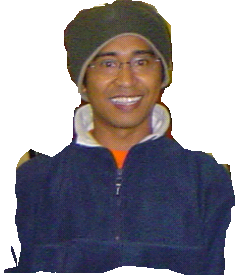It Is Mass Communication
 Associated Press (AP) writes: authorities in China have started this year to use mobile phone to disseminate warning text messages – knowing as sort message service or SMS – to their people. They inform people weather forecast on the possibility of typhoons land to the region. In Fujian province, for example, during the year the authorities have sent about 18 million messages with five typhoons information.
Associated Press (AP) writes: authorities in China have started this year to use mobile phone to disseminate warning text messages – knowing as sort message service or SMS – to their people. They inform people weather forecast on the possibility of typhoons land to the region. In Fujian province, for example, during the year the authorities have sent about 18 million messages with five typhoons information.Chinese government is not the first to use mobile phone as a mass-messages delivery device. In Indonesia, since last year President Susilo Bambang Yudhoyono has provided a special number for people to inform him every corruption cases they know occured in states departments. He used text messages to remind people about the danger of narcotics – I used to get a number of the messages last year. In Philippine mobile phone is even being used as a powerful political tool -- just similar to the Lebanese as they organized themselves to run protests against Syria military incursion on their land two years ago.
It is amazing to see how a technology that initially created for personal purposes is now being used as a media for mass communication activities. I must say that communication scholars are having a new challenge now: to redefine the boundaries between mass communication and interpersonal communication. Are those “old” presumption on mass communication theories – that only mass media can reach the large number of audiences at the same time and affect its audiences massively – still reliable?
“Nearly one-third of China's 1.3 billion people has a cell phone, creating a rival to television and radio as a way to reach the public,”writes AP. “China's population of cell phone users — the world's biggest — long ago surpassed the country's 365 million fixed-line phones, and is growing rapidly.”
To some extent mobile phone is similar to the Internet. You can use both of them not only as personal devices but also as mass communication channels. However, while the “power” of the Internet has been recognized long before, the abilities of mobile phone for a mass communication agenda is just to be discovered. Like the Internet it has an advance feature that hasn't been able provided by traditional mass media: the intensive direct personal-massive feed back channels. As a result, people can use mobile phone as a pro-democratic tool, as well as the Internet, for undermining authoritarian rule. However, I will also say that it is just a question of time before governments around the world find their ways of reducing the "power" of the devices and manipulating them for their own "authoritarian" purposes.

0 Comments:
Post a Comment
Subscribe to Post Comments [Atom]
<< Home